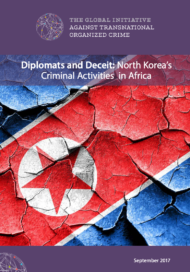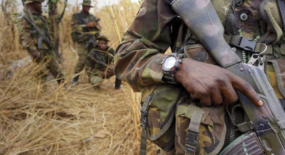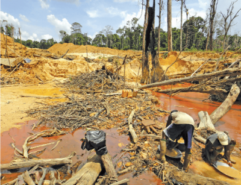Posted on 18 Apr 2014
INTERPOL has identified East Africa as one of several priority regions for its assistance to enhance law enforcement responses to elephant ivory trafficking. In 2013, global large-scale ivory seizures reached record levels, and many of these seizures occurred in East Africa, or in transit in Asia with an East African origin. In response, INTERPOL focused its initial efforts in Kenya, Tanzania, and Uganda by deploying Investigative Support Teams to support Member Countries in investigations and intelligence management, facilitating multinational law enforcement coordination, and providing assistance in the collection of ivory samples for DNA analysis. This report provides methods to enhance multinational law enforcement responses to elephant poaching and ivory trafficking from East Africa, as well as to identify persistent law enforcement challenges.
Eighteen large-scale seizures (over 500 kilograms) accounted for 41.6 tonnes of illicit ivory in 2013. These seizures represent increases over previous years, mirroring heightened rates of elephant poaching throughout Africa. A significant portion of ivory reaching international markets, especially in Asia, is derived from elephant populations in Tanzania. Moreover, large-scale ivory shipments typically indicate the participation of organised crime, with trafficking syndicates operating in multiple countries simultaneously. These crime syndicates source ivory from several hundred elephants for each shipment, and they bear the primary responsibility for the drastic decline of African elephant populations. As such, INTERPOL focused on enhancing law enforcement responses to elephant poaching and large-scale ivory trafficking in East Africa in order to identify methods to assist national and multinational responses.
The majority of large-scale ivory seizures have occurred in maritime ports. The ivory is hidden in shipping containers, and it is usually concealed by other lawful goods. By these methods East African ivory originating primarily from Tanzania has been transported directly to Asian maritime transit hubs, as well as through Uganda and Kenya to Asian hubs and consuming nations, with fewer known shipments to the Middle East. Such large-scale ivory shipments provide considerable opportunities to law enforcement agencies since maritime transport hubs represent logistics bottlenecks where ivory can be detected.
INTERPOL can assist Member Countries in collecting and analysing data obtained from poaching sites and through national law enforcement interviews with poachers; and especially through criminal network analysis based on documentation obtained during large-scale ivory seizures, as well as from the testimony of associated traffickers. The analysis of data from multiple Member Countries could provide critical intelligence on transnational ivory trafficking syndicates and their facilitators, which would enable national law enforcement agencies to more proactively and effectively respond to this crime. Moreover, the comprehensive analysis of these data can provide additional judicial means to disrupt ivory trafficking syndicates by providing evidence for multiple count indictments in which the trafficking is linked to fraud, tax evasion, and money laundering. Such crimes are often associated with more robust penalties, and their application to ivory trafficking could heighten risks to the trafficking syndicates.



